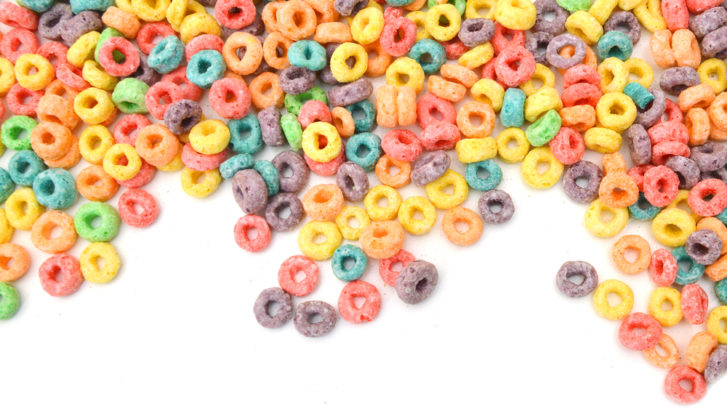Pediatricians Group Issues Warning On Food Additives
Your concierge family practice doctors at MD 2.0 in Jupiter, Florida, spend a good deal of time discussing healthy food approaches with our patients. One area of concern in trying to maintain health through sensible eating is the topic of food additives and chemicals used in food processing and storage. This is not a new issue: It goes back decades and cautionary warnings have been sounded by such diverse groups as the Natural Resources Defense Council (NRDC), the Center for Science in the Public Interest (CSPI), Consumers Union, and the Environmental Working Group (EWG), among others. Unfortunately, these public interest groups have often not been taken seriously, either by governmental regulatory agencies or by the public.
But a policy statement published last month by the American Academy of Pediatrics (AAP) has added a new urgency to the warnings about these common chemicals. As reported by CNN, the group representing more than 60,000 pediatricians “cited mounting evidence of negative health effects in children from chemicals added to food in processing, such as flavoring and coloring, and substances indirectly affecting food through packaging and manufacturing, such as adhesives and coating.”
Although experts have long objected to the various types of additives and packing which they say is impacting everyone’s health, the AAP focused on children because “[p]ound for pound, children eat more food and therefore have a higher level of exposure compared to us adults,” said the lead author of the report, Dr. Leonardo Trasande, director of the Division of Environmental Pediatrics at New York University School of Medicine.
“In addition, their developing organ systems are uniquely vulnerable. . . . There can be fundamental disruptions in various endocrine functions that can manifest not only in early childhood but potentially later in life as a result of prenatal or infant exposure.”
So what precisely are these additives? There are thousands of them; more than 10,000, according to the AAP. They include flavorings, chemical preservatives, and thickening agents, as well as such packaging components as bisphenols, perchlorates, phthalates, and PFCs, as well as preservatives, flavorings, and color enhancers.
CNN reported that the possible side effects of these various chemicals include thyroid hormone disruption, endocrine disruptions, effects on brain development, increased risk of obesity, and decreased birth weight. Bisphenol A (BPA), for example, a common chemical found in plastics, has been banned from baby bottles, baby formula cans, and sippy cups, but is still frequently found in many plastic food storage containers, including water bottles and the linings of cans.
Amazingly, the U.S. Food and Drug Administration (FDA) isn’t monitoring most of these additives. The problem dates back to a 1958 Food Additives amendment to the 1938 Federal Food, Drug, and Cosmetic Act. This allowed such substances as vinegar to be added to a processed food by designating it as Generally Recognized As Safe, or GRAS. Unfortunately, pressure by industry and lack of sufficient manpower at the FDA to perform necessary tests has permitted a stream of loopholes to emerge, allowing thousands of additives to be introduced into the food supply without the regulatory oversight that many consumers typically assume has occurred.
EWG released a list of what it calls the “Dirty Dozen” of suspect food additives, including nitrites and nitrates, potassium bromate, propyl paraben, BHA and BHT, “secret” flavor ingredients, artificial colors, and theobromine.
The purpose of the AAP statement was threefold: to urge the public to demand stronger governmental regulation on these products; to alert pediatricians to their dangers and urge them to pass these warnings along to their patients; and, to educate consumers to these hidden hazards.
Since regulatory action may be a long time in coming, the AAP recommends the following interim actions for consumers:
- Prioritize consumption of fresh or frozen fruits and vegetables when possible, and support that effort by developing a list of low-cost sources for fresh fruits and vegetables.
- Avoid processed meats, especially maternal consumption during pregnancy.
- Avoid microwaving food or beverages (including infant formula and pumped human milk) in plastic, if possible.
- Avoid placing plastics in the dishwasher.
- Use alternatives to plastic, such as glass or stainless steel, when possible.
- Look at the recycling code on the bottom of products to find the plastic type, and avoid plastics with recycling codes 3 (phthalates), 6 (styrene), and 7 (bisphenols) unless plastics are labeled as “biobased” or “greenware,” indicating that they are made from corn and do not contain bisphenols.
- Encourage hand-washing before handling foods and/or drinks, and wash all fruits and vegetables that cannot be peeled.
If you have any questions or concerns about this issue, please do not hesitate to contact us. We can help you sort out steps you can take to mitigate the exposure to your family.

